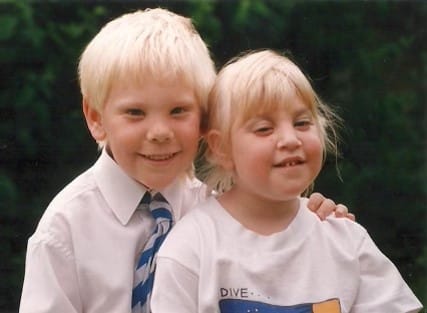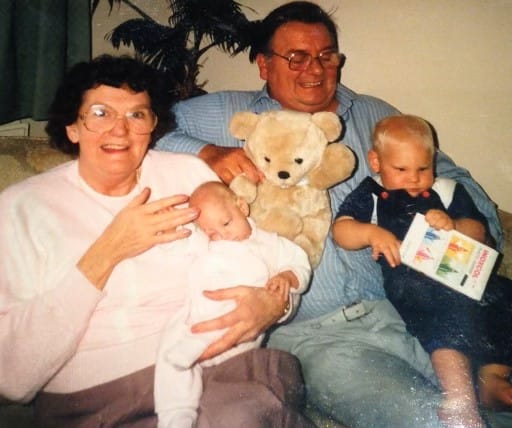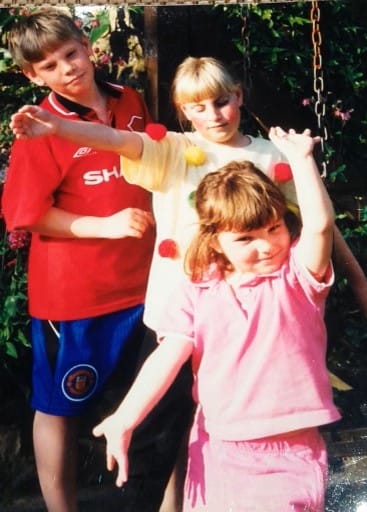
Issue 20: Dystinct Journey of Alistair Sims
Alistair Sims, a dyslexia advocate and scholar, overcame personal and professional challenges to establish Books on the Hill, an independent bookshop specializing in dyslexia-friendly literature, and BOTH Press, a publishing house dedicated to producing dyslexia-friendly fiction for adults.
Early Years
Early Years
I grew up with my sister Jocelyn, who is a year younger than me, and my youngest sister, Harriet, who is seven years younger. Both Jocelyn and I were diagnosed with apple peel intestinal atresia (this is where your intestines are shaped like an apple core) and a syndrome with no name, which included developmental delays. This unknown syndrome was later named to be Strømme, a very rare genetic syndrome. Researchers say that Strømme syndrome affects fewer than 1 in 1,000,000 births. There have been supposedly 13 cases of people with Stromme syndrome in medical literature as of 2019. Jocelyn and I are arguably two of the oldest people alive with Strømme.
Here comes the medical talk, so please forgive me: Strømme syndrome is a clinically variable disorder considered primarily by small bowel intestinal atresia (including apple peel intestinal atresia), microcephaly, developmental delay and/or intellectual disability, structural brain anomalies, and ocular, genitourinary, and cardiac anomalies.

We both underwent pioneering surgery in Oxford as babies to sort out our intestines; Joycelyn, who was worse off than me, had one eye that worked and one kidney working properly, and she had to have another operation again soon after, where more of her intestines had to be taken out. During this time, I lived with my grandparents, and as a consequence, I got addicted to trifles and other creamy and sweet things (I still can't say no to sweet food).

I have always had an affinity with the older generation. I was told that when I was staying with my grandparents around the age of 5/6, I went down to the beach and just chatted away with some elderly woman. Thinking about it, it may be because they didn't judge me; they just saw a little boy with white blonde hair chatting away. I have not changed much in regard to this, and there are some regulars to the shop with whom I have a nice chat, even sharing a table with them at the local café and having a cuppa with them. One lady, Mrs P, as we call her, and I have fun conversations regarding sports, specifically cricket, which she adores.
It is only now in my 30s that me and my sister have been officially diagnosed with Strømme, where both of us now have chronic kidney disease, which I have had since I was 21. It was, though, not until now, a source of anxiety. I am now beginning to feel the abnormality of this. Early on, it was more of a nuisance; my kidney function was still quite high, and I just had to keep taking certain tablets (which, with a useless working memory, was not easy). Unlike with my sister, the obvious effects of Strømme are not as apparent with me – this brings its own challenges, as we know hidden conditions are easily ignored or scoffed at.

This post is for paying subscribers only
SubscribeAlready have an account? Log in


